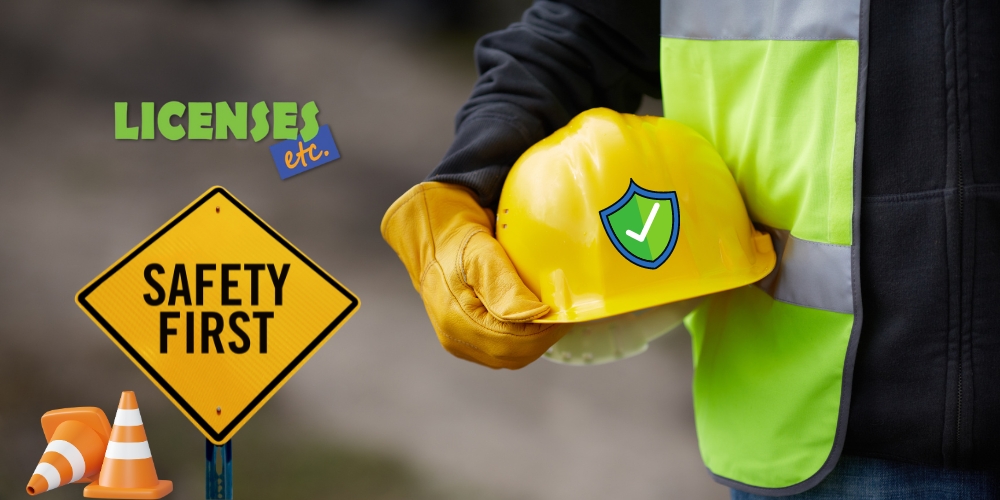- May 16, 2024
- Posted by: admin
- Category: Florida Contractor License

Safety is paramount in the construction industry, particularly for Florida contractors who work amidst various hazards daily. A robust safety checklist not only protects workers but also safeguards your business against severe financial ramifications and legal consequences. In this blog, we will delve into the top 10 safety checklist items every Florida contractor should implement on job sites and discuss the critical financial impacts of negligence, including increased workers’ compensation insurance premiums, potential lawsuits, and the devastating effects on business operations.
The Importance of Safety in Construction
Construction sites are inherently risky environments. Heavy machinery, high elevations, electrical systems, and hazardous materials all contribute to potential dangers. Ensuring the utmost safety is not just a regulatory requirement but a moral obligation to protect the well-being of workers. Implementing a comprehensive safety checklist can dramatically reduce the likelihood of accidents, thus maintaining productivity and securing the trust of clients and employees.
Top 10 Safety Checklist Items
-
Personal Protective Equipment (PPE): Ensure all workers are equipped with necessary PPE such as hard hats, gloves, safety glasses, high-visibility vests, and steel-toed boots. Regularly inspect the condition of PPE and replace any damaged or worn-out gear.
-
Training and Certification: All personnel must undergo mandatory safety training and hold relevant certifications. This includes training on equipment operation, hazard recognition, and emergency response procedures.
-
Site Inspections: Conduct daily site inspections to identify and rectify potential hazards. These inspections should be documented, and corrective actions should be implemented immediately.
-
Fall Protection Systems: Implement fall protection systems such as guardrails, safety nets, and personal fall arrest systems for workers operating at heights. Ensure that fall protection equipment is regularly inspected and maintained.
-
Hazard Communication: Clearly label all hazardous materials and ensure that Safety Data Sheets (SDS) are accessible to all employees. Conduct regular training on the proper handling and storage of hazardous substances.
-
Equipment Maintenance: Regularly inspect and maintain all machinery and tools. Faulty equipment can lead to serious injuries and downtime. Keep detailed records of maintenance activities.
-
First Aid and Emergency Plans: Ensure that first aid kits are readily available and adequately stocked. Develop and communicate emergency response plans, including evacuation routes and contact information for emergency services.
-
Electrical Safety: Ensure that all electrical installations are performed by licensed electricians and comply with local regulations. Use lockout/tagout procedures to prevent accidental energization of equipment.
-
Scaffolding and Ladders: Ensure that scaffolding is erected and inspected by qualified personnel. Ladders should be used correctly and inspected regularly for defects.
-
Housekeeping: Maintain clean and organized work areas. Ensure that debris, spills, and obstructions are promptly removed to prevent slips, trips, and falls.
Financial Impacts of Negligence
Neglecting safety protocols can have dire financial consequences that extend far beyond initial fines and penalties. Here are the top five financial impacts of negligence in construction safety:
1. Increased Workers’ Compensation Insurance Premiums
When accidents occur, workers’ compensation claims inevitably follow. A history of frequent claims can cause workers’ compensation insurance premiums to skyrocket. Insurance companies assess risk based on past incidents, and a poor safety record translates to higher costs. Over time, these increased premiums can strain your budget, making it difficult to allocate funds for other essential operations.
2. Lawsuits and Legal Fees
If an accident results from negligence, the contractor may face lawsuits from injured workers or their families. Legal battles are costly, often involving substantial attorney fees, court costs, and potential settlements or judgments. These expenses can deplete financial reserves and divert attention away from core business activities.
3. Project Delays and Lost Contracts
Accidents can halt construction projects, leading to delays and missed deadlines. Such disruptions not only affect current contracts but can also tarnish your reputation, making it harder to secure future work. Clients prefer contractors with a strong safety record, so negligence can result in lost opportunities and revenue.
4. OSHA Fines and Penalties
The Occupational Safety and Health Administration (OSHA) imposes hefty fines for safety violations. These penalties vary depending on the severity and nature of the infraction but can range from thousands to millions of dollars. Repeated violations can result in even more stringent penalties and increased scrutiny of your operations.
5. Damage to Business Reputation
A single accident can damage your company’s reputation irreparably. News of workplace injuries spreads quickly, affecting how clients, suppliers, and the public perceive your business. A tarnished reputation can lead to decreased trust, customer attrition, and difficulty attracting skilled workers, all of which undermine long-term success.
Remember, Always Safety First On Every Job
Prioritizing safety on construction sites is not merely a regulatory obligation but a critical component of sustainable business practices. By diligently following a comprehensive safety checklist, Florida contractors can protect their workers, avoid costly financial repercussions, and foster a culture of safety and reliability. Remember, investing in safety today is an investment in the longevity and success of your business.
For more information on safety protocols and compliance, or to discuss how LicensesETC can assist you in navigating the complexities of construction regulations, contact us today. Your commitment to safety starts with you.
To get started, schedule your FREE consultation online today as this is the fastest way; however, we are always a phone call away and can be reached at 239-777-1028. To learn more about the licenses we can help you with, please visit out Florida contractor license section as we explore this further.
